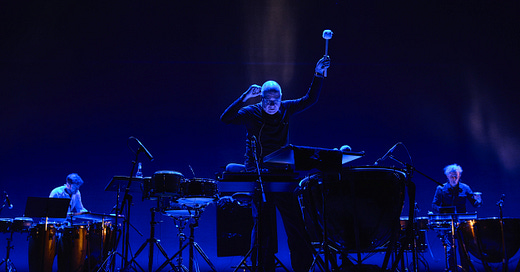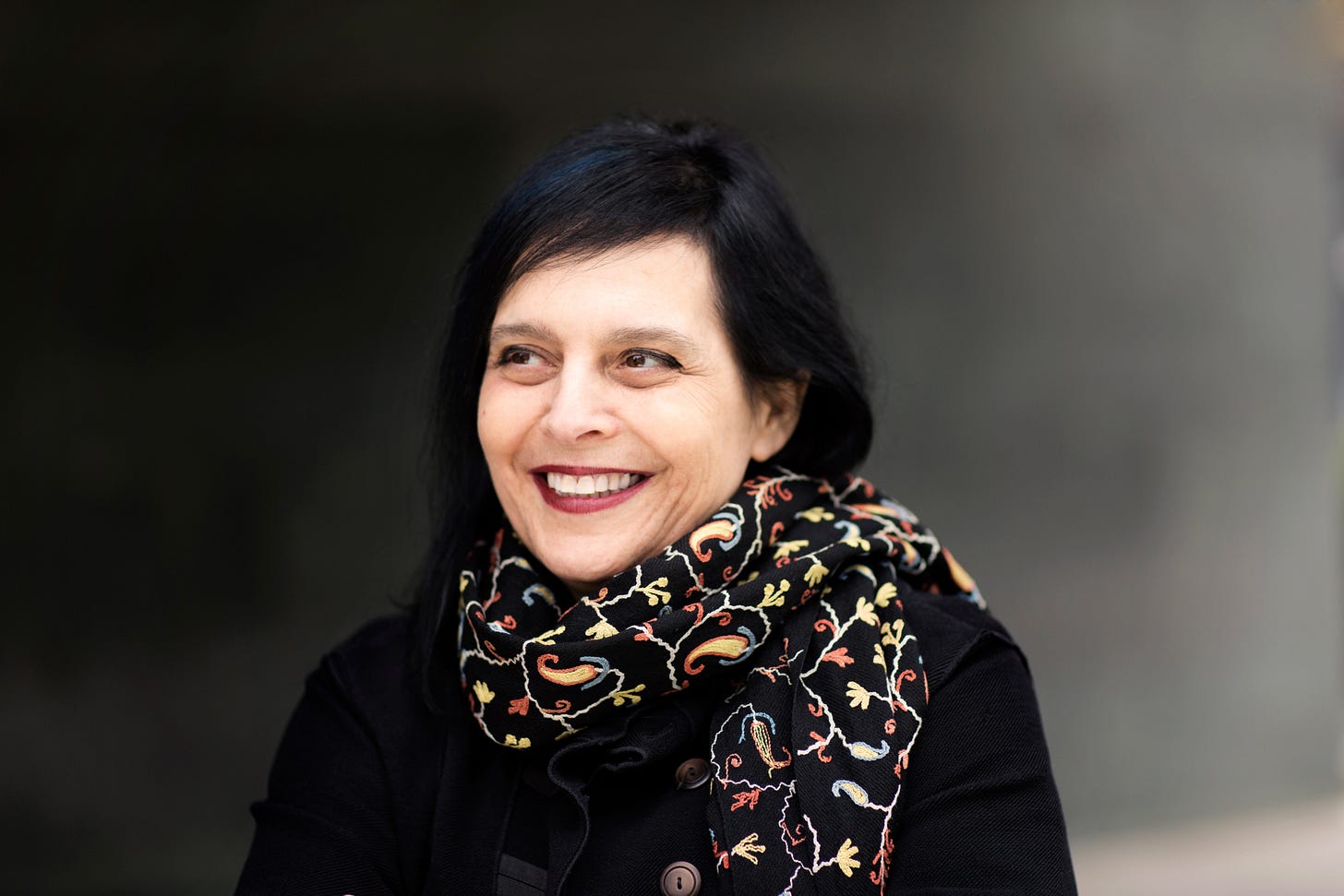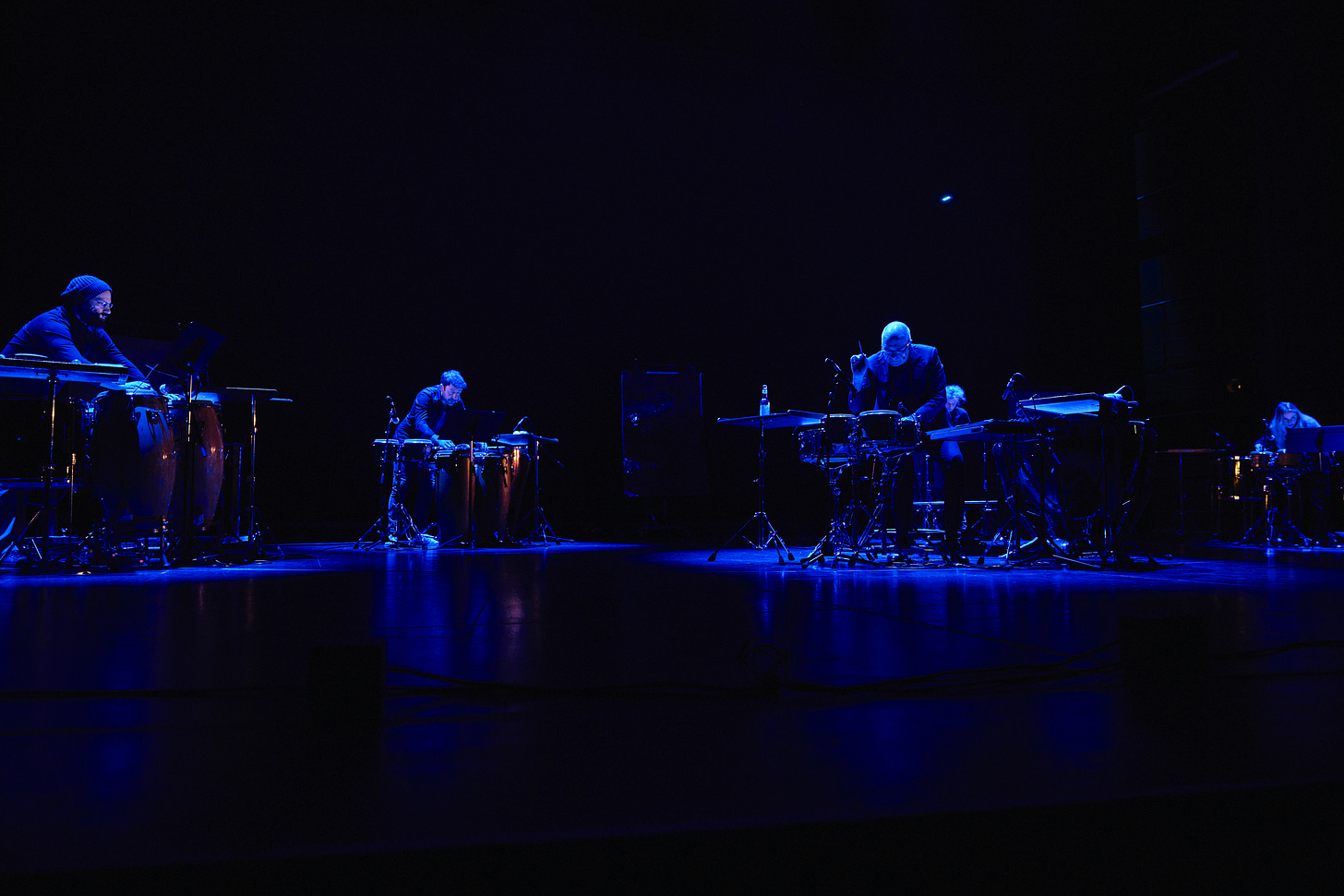What draws me to techno in a club is that it’s a bodily experience of something emergent: something without a name, something that looks into you and that, in so doing, effects a mutation of your supposed everyday self. What I like in contemporary classical music is much the same thing: not so much post-humanism as a delirious vitalism.
The other day, I was telling a film director about how I listen to contemporary classical music in concert. The music’s unfamiliarity is best approached, I said, through the imagination.
Once at a performance in Basel of a really radical Xenakis ensemble work (maybe it was Thalleïn), I imagined—literally imagined—that I was listening to the national anthem of an alien species. Freeing my everyday associations in this way, the music’s ‘difficulty’ flew away: what had been grey became kaleidoscopic. By shedding your usual musical expectations, your imagination becomes free to make a different sense of the music, hearing it on its own terms.
This is mostly a clubbing Substack, but before techno was my thing, contemporary classical music was my thing—specifically, the weirder end of contemporary classical. It inspired me to write this book, which Cambridge published last year.
When I talk about weirdness here, I’m not being glib. I mean that element of the music that can’t be reduced to notes or pitches. Stockhausen once told an interviewer that it was precisely the weirdness of avant-garde music that was its core quality, and that that was something we should engage rather than do away with.
Chaya Czernowin is one of my favourite contemporary composers. Since the 1990s, she’s composed a body of work that’s as ‘visceral, wild and undefined as experience itself’, as she puts it. Meticulously crafted textures of extended instrumental techniques often feature, and sometimes ad hoc inventions like scraping a hair comb or crackling soft-drink cans. Used with precise purpose, these novel sounds are never gratuitous; rather, they unveil strange acoustic vistas that evoke a sense of wonder. Currently a professor at Harvard University, Czernowin has had a significant influence on younger composers.
POETICA by Czernowin, performed last week at the Haus der Berliner Festspiel as part of the annual MaerzMusik festival, is a wonderfully other piece. Composing an aspect of being that usually goes unspoken, staging the anonymity of being alive, it’s scored for for percussion solo, percussion ensemble, prerecorded strings and IRCAM electronics played over the venue’s speakers.
The stage was lit deep dark blue. The soloist was Steven Schick. As the performance’s central figure, he had centre-stage not only physically but dramatically. The piece began with Schick using the tip of a drumstick to make writing sounds on the drum skin. Then, after a while, groans started up on the timpani, downwards-turning low glissandi. It sounded like whale song.
Initially, I was just seeing, saturated in deep blue, a solo percussionist leading a percussion ensemble who half encircled him (Les Percussions de Strasbourg). But as the piece went on, and as the soloist brought gestures into being—tremolando strikes, breaths into his microphone headset, groans on the timpani skin—it became that I was witnessing an alien communicating with other alien beings. Partly, it was to do with the inherent drama of the staging: there’s always something theatrical about a thousand people sat expectantly watching a small group of people lit up on a stage before them.
Merging with that was the fact that Schick looked like a character, and acted like one, too. He’s bald, he wears glasses, and he was dressed all in black with a microphone headpiece and two percussion mallets with their heads lit in dayglo, one pink and one yellow. And when, into the musical plane, he introduced some new sound—like a stuttering vocal sound, late on—the other players, surrounding him and watching him, started making the sound themselves; and the sound began emanating, too, from the house speakers electronically, some new communication sweeping around us. We were witnessing an alien speech we processed as something we called art.
On a more earthly level, I loved how this piece expresses lived human experience. It expresses it not in any cliched way but as deep and inexplicable. The unusual sound-layers, mostly achieved through non-traditional means, part every now and again to reveal breathing, respiration, the embodied human experience. That involved samples of protests and journeys to different places. Through staging human experience, POETICA empathises with us, showing us different aspects of having a body, a breath, a sense of wonder at it all.
The music is pregnant: it wants to become something through you. That’s its organicism. As well as beauty, there’s want: the want of wider expression, the want of wider communication. That’s its ethical power.
You can access a live performance of POETICA by the same performers here.







